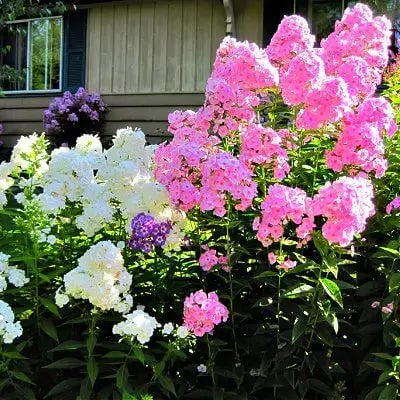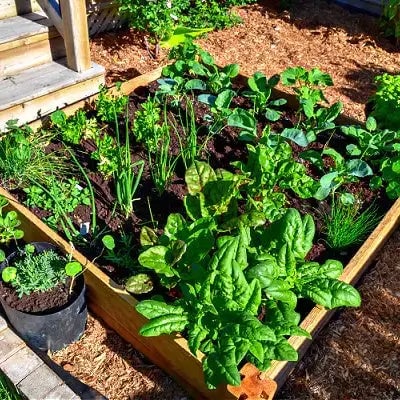An Organic Garden is Fascinating
That is where smart organic gardening tips are essential. That can help you grow tastier and better-tasting results from your organic garden. Use this advice to have your organic garden the best around.
Kids Can Help With Your Organic Garden
Your children can help you with your organic gardening endeavors. A garden can be a great learning experience for your children and allow you to bond with them while producing healthy food. Plant strawberries for your children in the organic garden. Children love to snap up these sweet, juicy fruits for themselves and will be more willing to help you if they can pluck their fruit from the garden.
Keep your tools close to make the most of your gardening time. An Online Nursery also sells inexpensive gardening supply tools, if needed, cheaper than gardening supply stores.
After your seeds have sprouted, the containers do not need to stay as warm as they once did. Keep an eye on your seeds to know when you should do this.
Have some plastic bags on hand to put over your muddy gardening shoes.
Space is significant to remember when planting an organic garden. You can easily underestimate how much space the plants need until they grow. Plan your garden carefully and put an appropriate distance between the seeds.
Try to work on your organic garden build-up. Even if you're too busy to focus on your garden's needs each day, you can try little things that prevent you from having a lot of work when you return to your garden. For example, snatch a weed or two whenever you pass the garden. You could clear a few bunches of weeds between checking on the burgers.
Use an aged laundry basket when you collect produce from your produce. The laundry basket is a perfect strainer for fruits and vegetables.
Organic gardening is more complicated than using chemicals, but the results make it worth it. While chemical companies may make astounding claims about their products, it is hard to dispute that organic gardening consistently produces superior results.
One of the most beautiful things about buying organic gardening over conventional gardening is that commercial pesticides are not used. Although this is better for your health, you must check all the products carefully for bugs or pests before consuming them.
The bulbs are ripe for harvesting when the green tops dry and turn brown.
Native Perennials Are Important In Your Organic Garden
You can make a newer garden for your perennials in just a few steps. Use the spade to get under the turf, flip it, and bury the whole area under a thick layer of wood chips. Wait a few weeks, and then plant your perennials in the brand-new bed.
Make your garden diverse. The wider the variety of plants growing in your garden, the more kinds of wildlife you'll have. Plant lots of plants that are more similar to a natural environment. If you can manage this, you will have a pleasant garden to be around and relax, and you will be satisfied with doing your bit for the environment.
Think about what products you need to use while getting ready to garden. Try to use natural and organic substitutes for the typical chemical fertilizers. A great example is the use of compost.
Try making your organic garden in the shade. These sorts of gardens are not high maintenance at all. They also require much less watering, saving a lot of time and work. That will also lead to slower growth, but fewer weeds will be in the garden.
Even though insects are present, they will not be damaged by plants.
You have heard a lot about the uses of compost, but you may not know what to put in a bin like this. Compost is a mixture of wood chips, leaves, straws, and twigs, producing scraps that have broken down into soil. You want to use compost instead of fertilizer and save money.
As you now know, organic gardening can significantly enhance the taste and quality of your products. It does take work and patience, but it is worth it at mealtimes when your organic, homegrown produce is present.
Source of Information for Organic Gardening
TN Nurseries best selling perennials
Jacobs Ladder
Creeping Phlox
Jewel Weed
The Best Way to Grow Plants for Health Benefits
Cultivating plants for their health benefits is a fantastic way to boost your health while connecting with the natural world. You can grow healthy produce at home whether you have space in your backyard or just a balcony or windowsill container. Optimal growing conditions, deliberate plant choices, and sustainable gardening techniques help improve your harvest's nutritional value while supporting your wellness. This section outlines essential factors for cultivating plants with health benefits while providing practical guidance for each step.
First and foremost, soil health is crucial. Plants depend on soil to access essential nutrients and maintain proper water retention while providing structural support for their roots. Vigorous plants that produce nutrient-rich produce arise from healthy soil conditions. Test pH levels and nutrient composition through a home soil test kit or professional testing services. Most fruiting plants grow best in soils with pH levels between 6.0 and 7.0, although different crops require slightly different soil conditions. Once you analyze your soil characteristics, add organic matter, like compost or manure, because it increases nutrient accessibility and enhances soil structure. You can add materials such as shredded leaves or straw as mulch layers to help retain moisture and prevent weed growth while the materials decompose to nourish the soil.
Next, consider the importance of sunlight. Vegetables and fruits need at least six hours of direct sunlight daily to conduct photosynthesis successfully. Growing outdoors in regions with long, warm summers generally allows for easy management of sunlight exposure. When using a balcony or an indoor space, monitor sunlight patterns to identify the best position during peak daylight hours. Place plant containers where they get enough sunlight or install grow lights when sunlight is unavailable. Leafy greens, including lettuce, kale, and spinach, can grow in partial shade because they need fewer daylight hours.
How you water plants plays a vital role in ensuring their healthy growth. Watering plants less frequently but sincerely encourages root system development, enhancing plant resistance to drought conditions. You should water plants deeply to reach the lower roots and wait for the topsoil to dry before watering again. Roots will grow downward to find water instead of remaining close to the surface when this method is used. Excessive watering creates an environment where root rot and fungal diseases thrive, and essential nutrients get washed away from the soil. Organic mulches placed around plant bases help save water and maintain soil moisture.
The quality of nutrition in plants can be significantly improved by selecting suitable plant varieties and practicing soil health methods and proper sunlight and watering techniques. Spinach and kale, which belong to the dark leafy greens group, contain high levels of vitamins and minerals. In contrast, broccoli and Brussels sprouts, part of the cruciferous vegetables category, contain multiple beneficial compounds. Choose dwarf or container-friendly varieties of tomatoes, peppers, and eggplants when growing space is limited. Antioxidant-rich herbs such as basil, parsley, rosemary, and thyme grow well in small containers on bright windowsills. Adding these herbs to your recipes improves taste while providing multiple health advantages, including anti-inflammatory effects and immune system support.
The benefits of organic and sustainable farming techniques are critical for cultivating plants that provide health advantages. Minimizing the use of artificial chemicals protects soil health and keeps your produce safe. Instead of using chemical pesticides, you should consider natural pest control techniques, which include companion planting, making organic sprays like neem oil or soap mixtures, and releasing helpful insects such as ladybugs and lacewings. Rotating crops effectively prevents pest and disease accumulation. Rotating different plant families within your garden beds each year decreases soil pest and pathogen establishment risk.
The maximum health advantages from your garden become available when you practice proper harvesting and storage methods and prepare your produce correctly. The optimal flavor and nutrient levels in vegetables and herbs occur when you harvest them at their peak ripeness. The quicker you consume produce after harvesting it, the more vitamins, minerals, and antioxidants you will preserve. Produce storage requires specific conditions depending on the crop type. Vegetables maintain their freshness best in cool, humid environments, while herbs thrive inside sealed refrigerator bags, which may include moist paper towels to preserve their moisture.
To achieve lush and productive plants that enhance dietary health, cultivate nutrient-rich soil, provide proper sunlight while watering accurately, and adopt organic practices. When you grow your food, you maintain complete control over its cultivation, enabling you and your family to enjoy fresh, pesticide-free foods full of nutrients. Combining self-sufficiency with sustainable practices and enjoyment leads to developing a flourishing garden that promotes health.
Read more

Gardening enthusiasts enjoy vibrant perennial flowering plants that turn their property into a masterpiece. But planting flower beds from scratch each year can become tedious and labor-intensive to...

Affordable Landscaping Landscaping is truly the icing on the cake for a homeowner. "The exterior of the home creates the first impression, and it must shine," states Tammy Sons, owner of Tn Nur...


